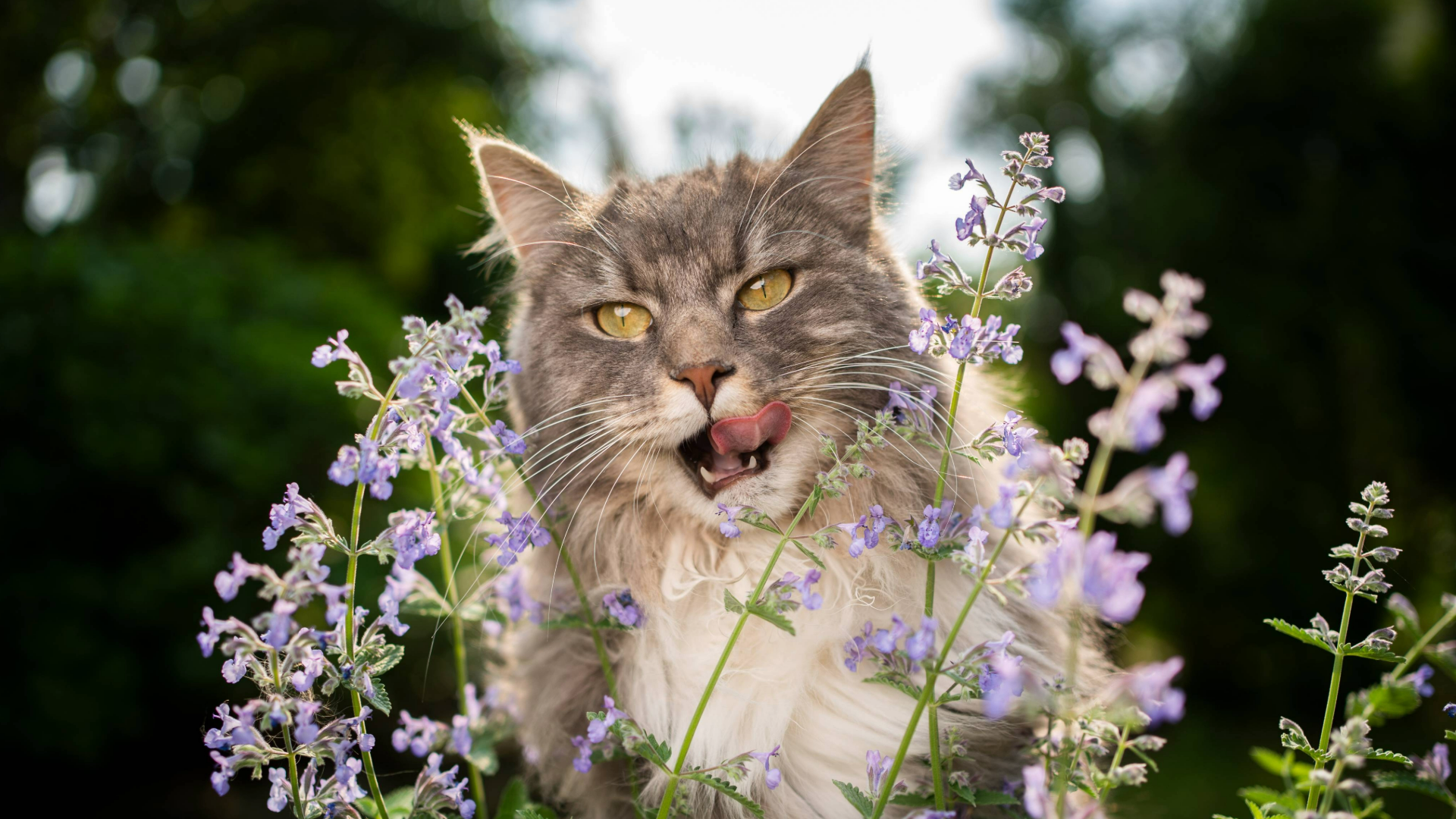
If you’re a pet parent, you may have wondered, "Is catnip bad for cats?" After all, it makes them react in the most peculiar ways, from meowing and rolling to purring and drooling, so you might be concerned about whether it’s safe for your feline.
Thankfully, expert vet Dr. Rebecca MacMillan has confirmed that catnip is not harmful to cats. In fact, it has a long list of benefits (like helping with anxiety and promoting relaxation). You can even buy the best catnip toys, which can promote cat play and exercise.
Below, Dr. MacMillan has explained the benefits and side effects that catnip might have on your cat, why they love it so much, and the reason it impacts our kitties the way it does.
Is catnip bad for cats?
There’s no evidence that catnip is bad for cats, but there are a few side effects that are worth keeping an eye out for.
In small to moderate doses, catnip is likely to be a purely pleasurable experience for most cats, but if your kitty hits the catnip buffet and devours too much of the stuff in fresh or dried form, they can end up with an upset tummy. This can lead to vomiting, diarrhea, and a general feeling of being unwell. Thankfully, cats are expert self-regulators so overdosing on catnip is pretty rare.
What’s more common is cats injuring themselves while they’re bouncing around the room on a catnip high, so it can be a good idea to keep an eye on them just to be safe.
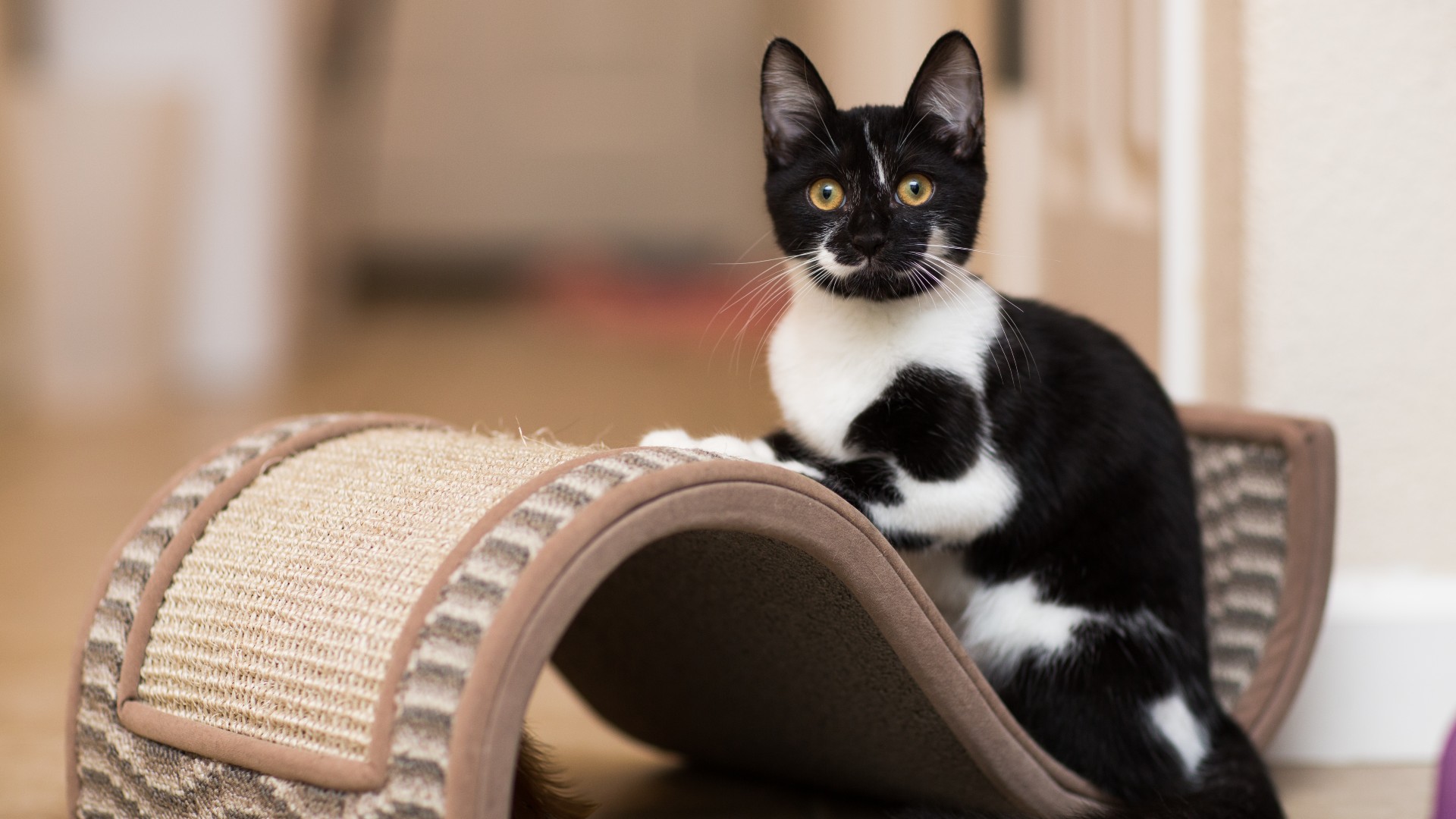
What is catnip?
Catnip, or nepeta cataria, is a perennial herb that closely resembles oregano when dried but is actually a member of the mint family. Originally found in Northern Africa and the Mediterranean, catnip is now found growing wild throughout Europe and North America.
With heart-shaped or triangular leaves and blooms of blue, white, pink, or lavender, catnip is rather pretty in appearance and easy to grow, even for the most novice of gardeners. If you decide to experiment with growing catnip at home, be sure to keep it out of reach of your fur pal’s paws as otherwise, you may find it gets gobbled up rather quickly!
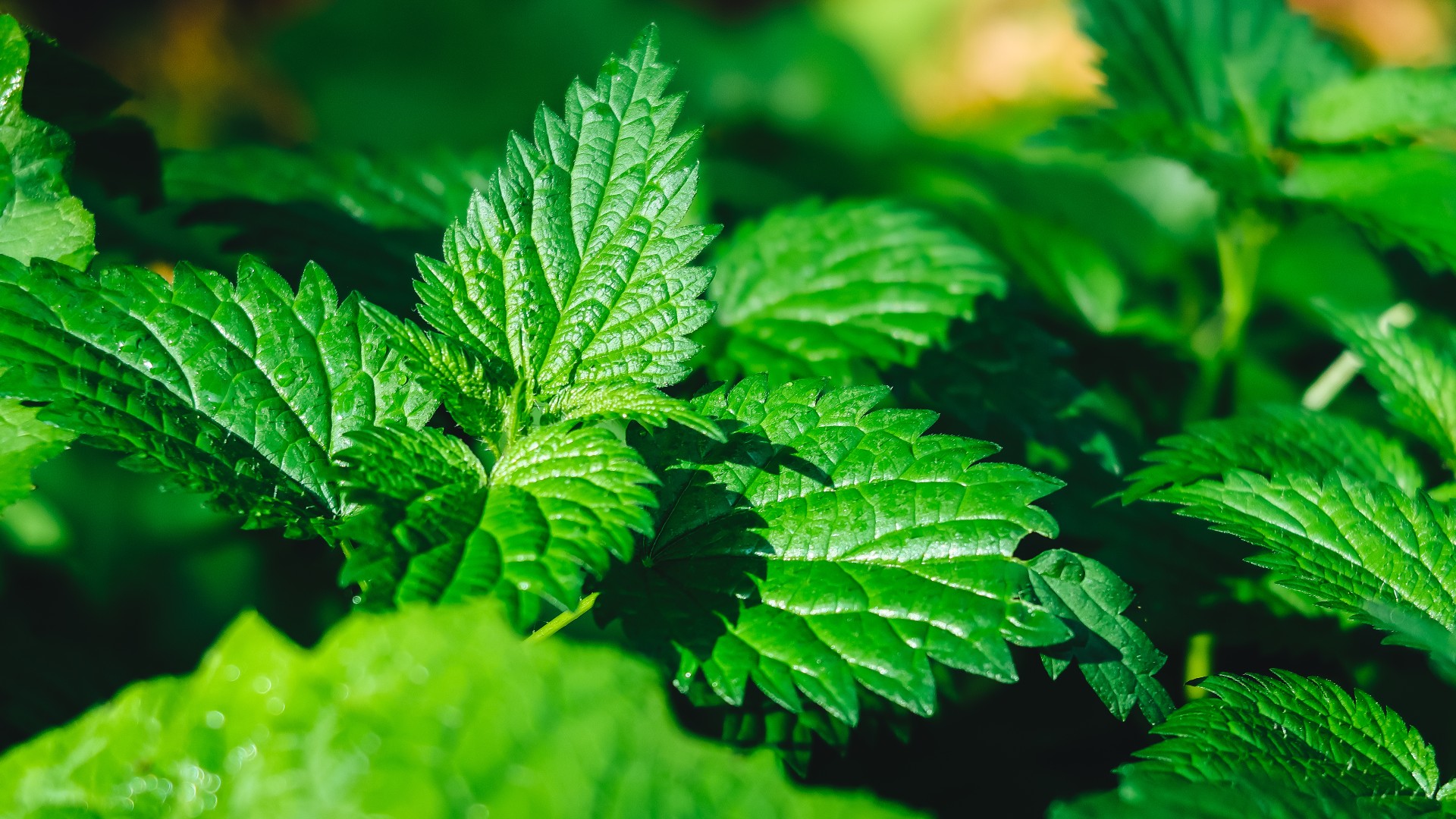
Why do cats love catnip?
Dr. MacMillan says: “Catnip contains a substance called nepetalactone which is released when the plant is chewed, crushed, or rubbed against. Nepetalactone binds to sensors in your cat’s nose, sending signals to their brain that influence behavior. This is very similar to the effects that pheromones can have on cats, but to a much more obvious degree.
“After interacting with catnip, your cat may become hyperactive, even appearing slightly crazed as they run around the house. Some cats may start to drool, roll around, or stretch out too. Alternatively, some cats become chilled out and may even sit staring into space for a little while. Your cat might not react at all; its exact effects can vary between different cats.”
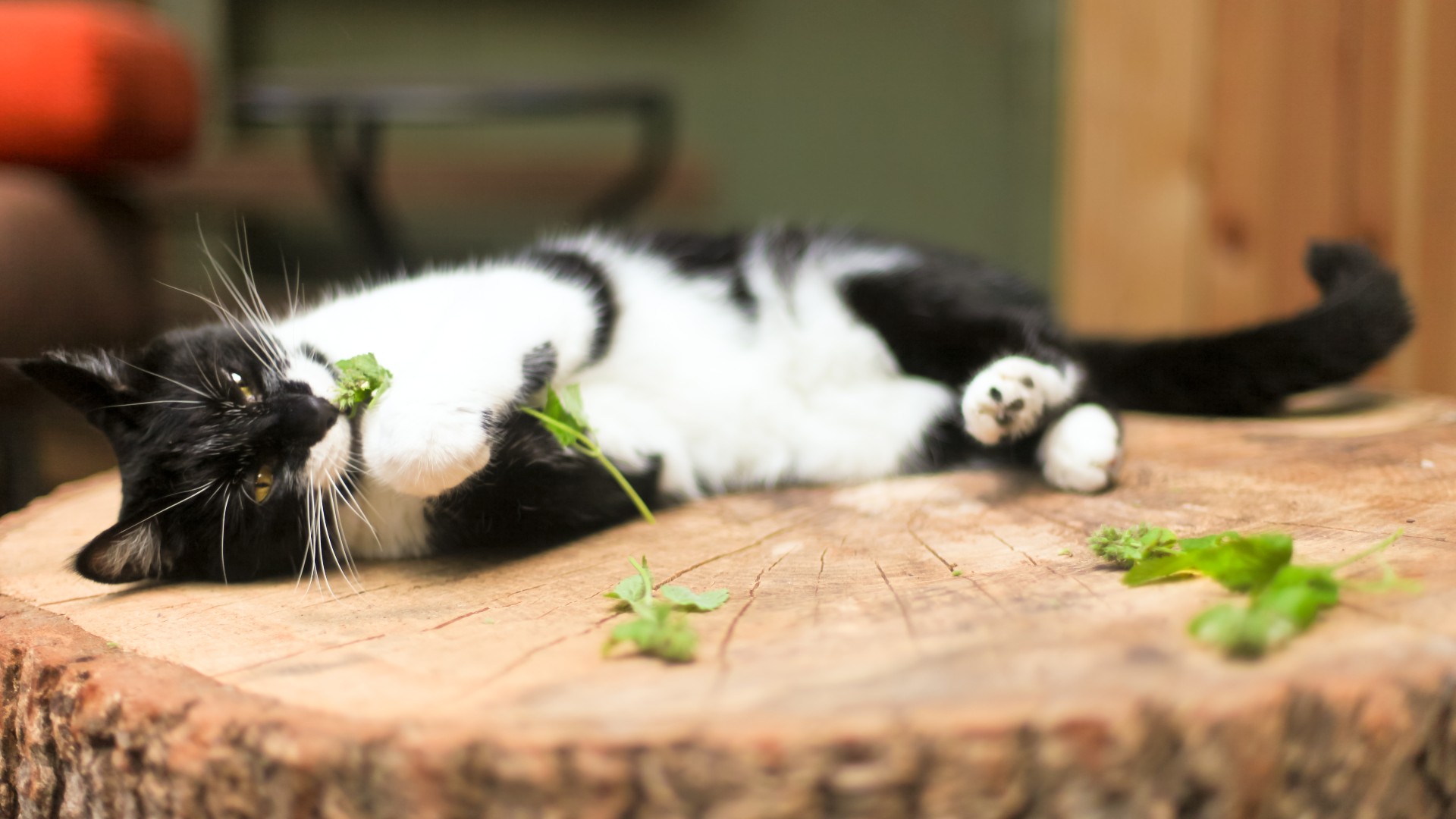
How will catnip affect your cat?
What does catnip do to cats? Sniffing catnip tends to have a stimulant effect, in much the same way that sniffing rosemary, coffee beans, or citrus has in humans. However, when catnip is ingested it usually acts as a relaxant, like chamomile, making cats feel chilled and sleepy.
When a cat smells catnip they start to mimic the same sort of behavior that female cats in heat display. This can involve purring, meowing, rolling on the ground, zipping about, and drooling. If you notice your kitty trying to swat or chase things that aren’t there, that’s because catnip is known to have the same effect that hallucinogenic drugs have on humans.
While most moggies go mad for catnip, some may exhibit mild aggression and growling behaviors. This is something to watch out for if you have a multi-cat household. If you try your cats on catnip and notice them displaying negative behaviors, we recommend you stop giving it to them and speak to your veterinarian who can advise you on other options, such as valerian.
The good news is that the effects of catnip are short and sweet, lasting for just 5 to 15 minutes, and once they wear off, it’ll take a few hours before your kitty can go catnip crazy again.
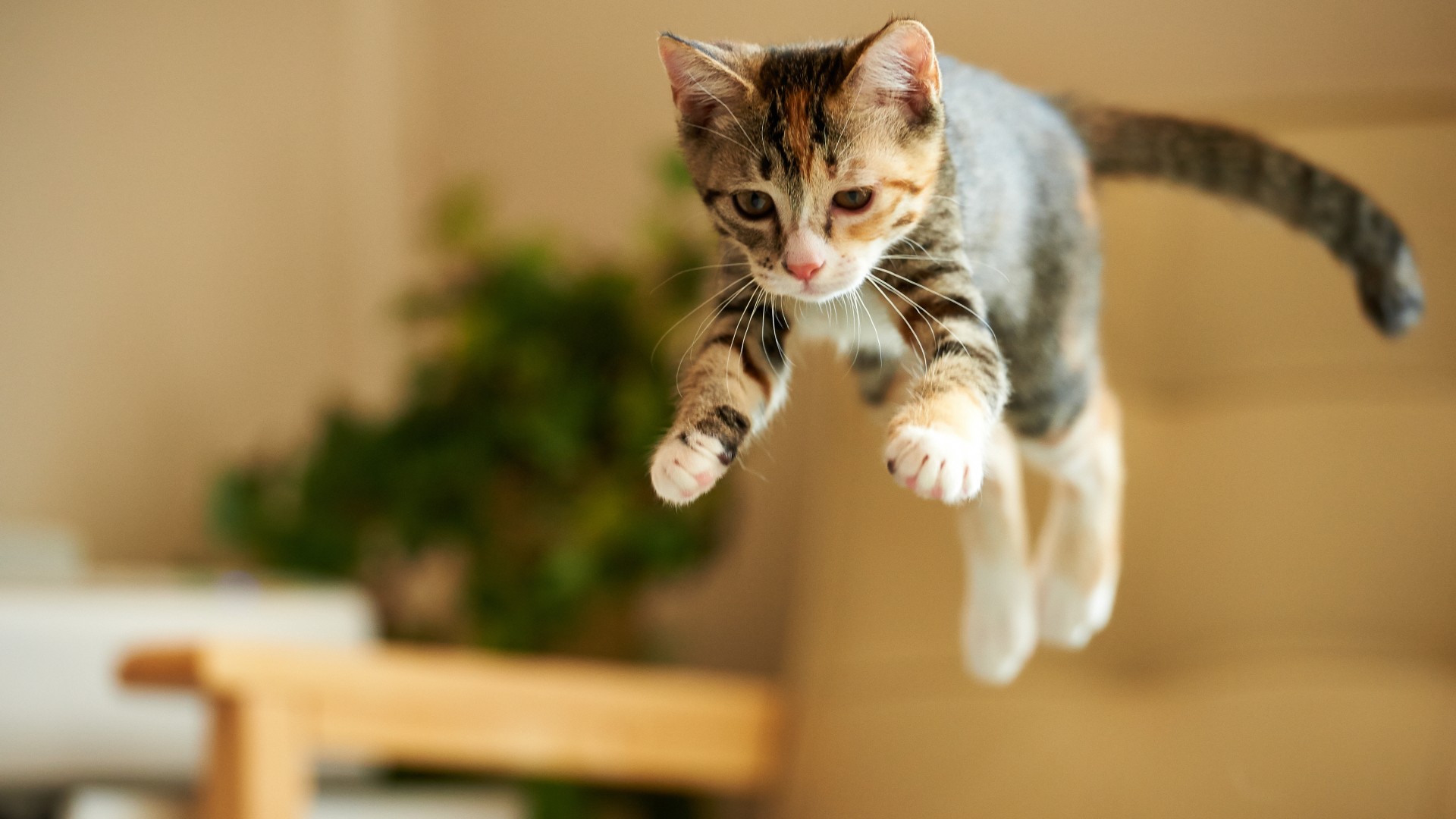
Benefits of catnip
Believe it or not, catnip isn’t just a fun treat, giving it to your cat can also be beneficial. Catnip can be a great way to train your kitten or cat in appropriate indoor behavior, including teaching them to use a scratching post instead of clawing at your furniture. Some of the best cat scratching posts come with a bag of catnip that you can sprinkle around the base to lure your kitty in.
It’s also the perfect solution for sedentary cats as it can boost their activity levels and get them engaged in some easy exercise that will benefit their bones, muscles, and joints - not to mention their waistline!
If you have a cat that hates going to the vet, take advantage of the relaxant effect of infused catnip to help calm them down. Soup for cats is a fairly new phenomenon, and while it may sound labor-intensive, catnip soup is quick and easy to make, and the mild sedative effect can make those vet visits a little easier to manage.
Read next: Are lasers pointers bad for cats? and Can kittens have catnip?
Edited by Georgia Guerin and Alexis de Leaver.







